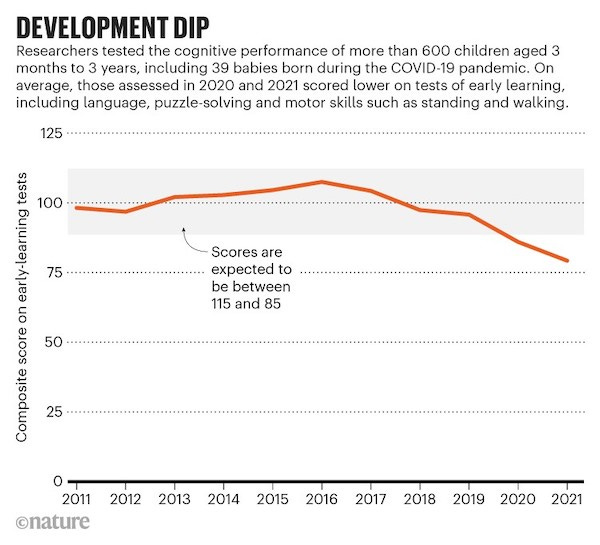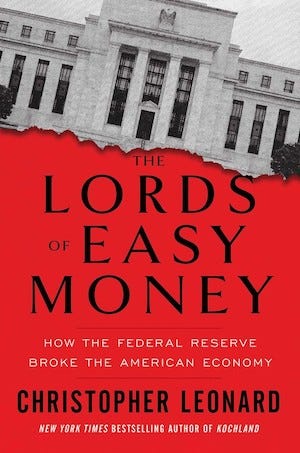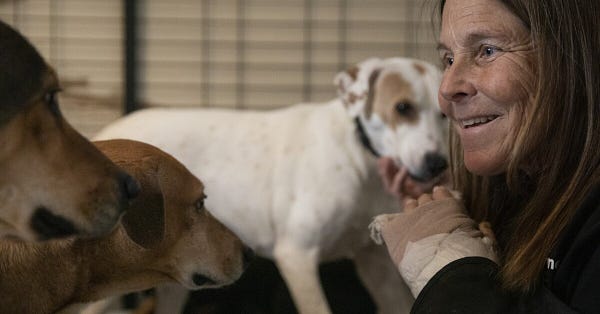
Like what you see? Here’s your chance to support my work:
Welcome to our weekend edition, a combination of the world, profiles, and good reads that you might not see during the week.
Subscriber benefit (today, 3 pm ET): What Happens Next, an extraordinary, invitation-only weekly call with academics and experts across economics, industry, medicine, history, literature, and more.
Today’s speakers include:
Dr. Ari Ciment, pulmonologist at Mt. Sinai Hospital in Miami Beach: Anti-Virals for Omicron
Tim Tackett, Professor Emeritus in History at the University of California at Irvine: The Continuing Relevance of the French Revolution
Listen & Register: Newsletter subscribers can listen to today’s call here.
The World
Halting progress and happy accidents — how mRNA vaccines were made: The stunning Covid vaccines manufactured by Pfizer-BioNTech and Moderna drew upon long-buried discoveries made in the hopes of ending past epidemics. (New York Times)
China’s zero-Covid policy is posing a challenge for manufacturers and supply chains, as the lockdowns and restrictions risk causing even greater disruption than during earlier waves of the pandemic. (Financial Times)
Citigroup sticks with its Covid-19 vaccine mandate, while GE drops its rules. (Wall Street Journal)
Corporate America is coming around to remote work. The case for the functionality of remote work has largely been settled: The wheels of productivity continued to hum on Wall Street and in Silicon Valley and other corporate strongholds even as their sprawling offices lay vacant. And throughout 2021, profits rolled in. Corporate leaders attempting to coax employees back to the office have largely accepted the inevitability of the hybrid work model. Now they are learning to leverage its benefits, according to Columbia Business School Prof. Adam Galinsky. That includes more flexibility and less time commuting for employees, and lower real estate and operating costs for companies. (Washington Post)
Boris Johnson’s tenure as prime minister stands on a knife edge as cabinet ministers and supporters expressed doubts that he would survive a scandal over Downing Street lockdown parties that prompted an apology to the Queen. Downing Street said it was “deeply regrettable” that a party had been held at a time of “national mourning”. The event, held on the eve of Prince Philip’s funeral, saw aides smuggling alcohol into the basement in a suitcase with a DJ playing tracks. Meanwhile, Johnson is planning a mass clearout of No 10 and a series of populist announcements to save his tottering premiership. (Financial Times, The Times)
People really want to ski; Vail is racing to keep up: Worker shortages, long lines and less open terrain are making this winter season challenging for the resort titan of the ski industry. “I want you to open my mountain.” (Wall Street Journal)
Profiles & Reads
(CR note: If you like this piece, check out the “Read” recommendation below. This is an excerpt. Also, I’m recording a podcast with the author, Chris Leonard, this week. Have a question I should ask him? Just reply to this email and let me know!)
Thomas Hoenig doesn’t look like a rebel. He is a conservative man, soft-spoken, now happily retired at the age of 75. He acts like someone who has spent the vast majority of his career, as he has, working at one of the stuffiest and powerful institutions in America: the Federal Reserve Bank. Hoenig has all the fiery disposition that one might expect from a central banker, which is to say none at all. He unspools sentences methodically, in a measured way, never letting his words race ahead of his intended message. When Hoenig gets really agitated he repeats the phrase “lookit” a lot, but that’s about as salty as it gets. This makes it all the more surprising that Tom Hoenig is, in fact, one of America’s least-understood dissidents. Between 2008 and 2014, the Federal Reserve printed more than $3.5 trillion in new bills. Hoenig was the one Fed leader who voted consistently against this course of action, starting in 2010. In doing so, he pitted himself against the Fed’s powerful chair at the time, Ben Bernanke, who was widely regarded as a hero for the ambitious rescue plans he designed and oversaw. Hoenig lost his fight. (Politico)


The Tonga eruption explained, from tsunami warnings to sonic booms: Tonga has been cut off after an undersea volcano erupted, triggering a tsunami. The volcanic plume generated record amounts of lightning before producing a blast heard thousands of miles away. Here’s what geologists say drove the event—and what may happen next. (National Geographic)


(CR note: This is the web3 piece everyone is talking about. Last week Signal founder Moxie Marlinspike he was stepping down as CEO. Before that, he wrote one of the most shared pieces on web3. Tl;dr: He’s not impressed… and doesn’t feel it’s so different from web 2.0. So what is web3? Read on…)
My first impressions of web3: Despite considering myself a cryptographer, I have not found myself particularly drawn to “crypto.” I don’t think I’ve ever actually said the words “get off my lawn,” but I’m much more likely to click on Pepperidge Farm Remembers flavored memes about how “crypto” used to mean “cryptography” than I am the latest NFT drop. Also – cards on the table here – I don’t share the same generational excitement for moving all aspects of life into an instrumented economy.
Even strictly on the technological level, though, I haven’t yet managed to become a believer. So given all of the recent attention into what is now being called web3, I decided to explore some of what has been happening in that space more thoroughly to see what I may be missing. (Moxie Marlinspike)
The COVID generation: how is the pandemic affecting kids’ brains? Child-development researchers are asking whether the pandemic is shaping brains and behavior. Like many pediatricians, Dani Dumitriu braced herself for the impact of the SARS-CoV-2 coronavirus when it first surged in her wards. Dumitriu and her team at the NewYork–Presbyterian Morgan Stanley Children’s Hospital had more than two years of data on infant development — since late 2017, they had been analyzing the communication and motor skills of babies up to six months old. Dumitriu thought it would be interesting to compare the results from babies born before and during the pandemic. A few days later, her colleague Morgan Firestein called Dumitriu in a panic: “She was like, ‘We’re in a crisis, I don’t know what to do, because we not only have an effect of a pandemic, but it’s a significant one.’” The infants born during the pandemic scored lower, on average, on tests of gross motor, fine motor and communication skills compared with those born before it. It didn’t matter whether their birth parent had been infected with the virus or not; there seemed to be something about the environment of the pandemic itself. (Nature)
Wordle is our new drug: Five letters. A rush of dopamine. The new word game soothes the covid blues. Wordle has ensnared the numbers people and the word people, the Scrabble obsessives and the Sudoku fans. It’s easier than the New York Times’s Spelling Bee; it’s free; and it’s one small thing that’s solvable when much else during a pandemic seems insurmountable. A quick timeout where the only variants that matter are those in your vocabulary. Predictably, players are sharing their scorecards — including how many tries it took — on social media. Created in late 2021 by a Brooklyn software engineer, Wordle has become the sourdough bread of January 2022. All you need is a starter. (Washington Post)
Wordle is tech born of love that asks nothing in return: (TechCrunch)
How the world went wild for Wordle: Satisfying puzzles with clever solving tactics have a strange traction — and this may be the most endearing yet. (Financial Times)

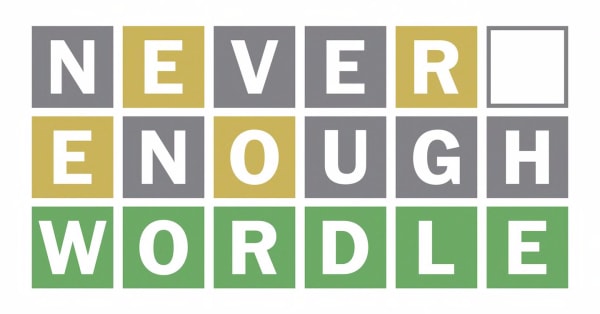
Listen, Watch, Read
I’m introducing this new periodic feature to the Weekender — a recommended podcast, video & book. Let me know what you think (and send me your own suggestions) by replying to this email.
Listen: Dr. Jeff Duncan-Andrade: The Purpose of Education Should Be Youth Wellness. One of the podcasts I host is The 180, a podcast for the education non-profit Turnaround for Children that explores how to transform 21st century education – how to turn it around – using 21st century science. I discuss the future of education with some of our nation’s top innovative minds and professionals.
Dr. Jeff Duncan-Andrade has a way of asking questions about the American public school system that are as precise as they are provocative. One of his questions: “Why do we take children by law from their families at age six for 13 consecutive years for eight hours a day?” The response, he says, should be youth wellness. His remedy: A complete rethink and rebuild of public education, one built through something he calls “community responsiveness.” Dr. Duncan-Andrade also seeks to bring his vision to life through the East Oakland school that he co-founded, the Roses in Concrete Community School, in lectures he delivers around the world, and through his books and numerous journal articles on effective practices in schools. The conversation was so engaging, it took two episodes. (The 180)


Watch: If you’re not yet aware of MIT OpenCourseWare, you should be. This class, 9.13 Introduction to the Human Brain, is one of the most popular — gaining more than 9.6 million views on YouTube in only three months. Here, Prof. Kanwisher tells a true story to introduce the course, then covers the why, how, and what of studying the human brain and gives a course overview. As one commenter notes: “Isn’t it marvelous when gifted teachers have great story telling skills. I’m hooked for the full course.” (MIT OpenCourseWare)
Read: The Lords of Easy Money: How the Federal Reserve Broke the American Economy. The New York Times bestselling business journalist Christopher Leonard infiltrates one of America’s most mysterious institutions—the Federal Reserve—to show how its policies spearheaded by Chairman Jerome Powell over the past 10 years have accelerated income inequality and put our country’s economic stability at risk.
Good News
This man was at the end of his life. Strangers stepped up to take him on bucket-list adventures: “It blew our minds. I was just scrolling and scrolling. I was so overwhelmed by people’s generosity.” (Washington Post)

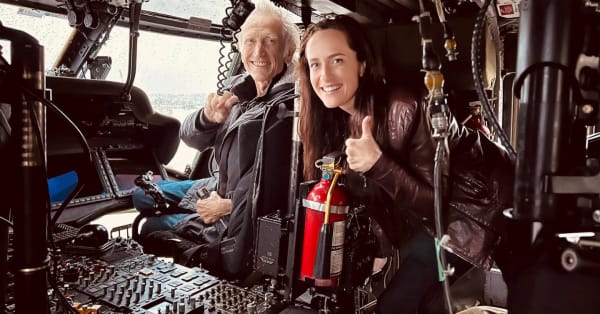
Dog tracker has helped hundreds of families reunite with their runaway pets. Dog recovery specialist Babs Fry says that in order to find a missing canine, you need to think like a canine. (Los Angeles Times)
Have a great Sunday! If you liked the newsletter, now’s a good time subscribe!







